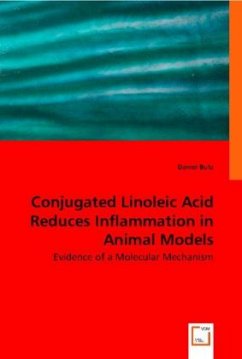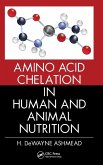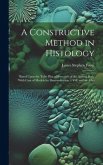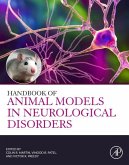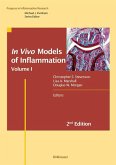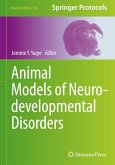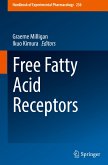Conjugated linoleic acid (CLA) isomers are naturally occurring dietary fatty acids derived primarily from microbial biohydrogenation of linoleic acid. Commercially synthesized dietary CLA supplements (predominantly equal parts c9, t11 and t10, c12 CLA) were shown to alleviate clinical signs of inflammatory diseases such as atherosclerosis, lupus, type I airway hypersensitivity, endotoxin induced cachexia, and models of inflammatory bowel disease. Potential anti-inflammatory properties of CLA may be attributable to its regulation of TNF and inducible cyclooxygenase (COX-2) via signaling pathways for TNF and COX-2 such as peroxisome proliferator-activated receptor kappa (PPARkappa), nuclear factor-kappaB (NF-kappaB), and MAP Kinase.This work explores molecular mechanisms of CLA's action of inflammation and associated signaling pathways through in vivo experimentation in various models of inflammation as well as analysis of signaling pathways at the molecular level. In particularwe have utilized the murine collagen induced and collagen antibody induced arthritis models of rheumatoid arthritis, and the endotoxic shock model of the severe systemic inflammatory response. Our hypotheses have been derived from the concept that dietary CLA is a stable structural analog of the pro-inflammatory nutrient linoleic acid, and thus may exert anti-inflammatory actions.
Bitte wählen Sie Ihr Anliegen aus.
Rechnungen
Retourenschein anfordern
Bestellstatus
Storno

